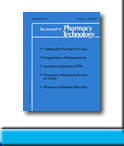 |
 |
Licensed Vaccines for Rotavirus Prevention in the US: A Review
Katherine S Hale and Sherrill J Brown
To request full article click here.
Objective: To review the pharmacology, efficacy, safety, and tolerability of RotaTeq and RotaRix, 2 rotavirus vaccines.
Data Sources: English-language articles were obtained via MEDLINE (1966-August 2009) and EMBASE (1980-August 2009) searches using the key words rotavirus vaccine, epidemiology, diarrhea, intussusception, RotaShield, RotaTeq, and RotaRix. Bibliographies of selected articles were used to identify additional sources.
Study Selection and Data Extraction: Available published articles reporting the results of human studies of rotavirus vaccines were reviewed for inclusion in this article. Additional information regarding clinical trials and adverse events was obtained from the manufacturer’s prescribing information for each vaccine.
Data Synthesis: RotaTeq is a live, attenuated human-bovine pentavalent vaccine, and RotaRix is a live, attenuated human vaccine. Both vaccines are approved for the prevention of rotavirus infection and recommended for routine immunization in healthy infants aged 14 weeks to 8 months. The vaccines differ in virologic characteristics, but clinical trials indicate similar efficacy and safety. Each vaccine is more than 70% effective in preventing any severity of rotavirus gastroenteritis and more than 98% effective in preventing severe disease through one full season of rotavirus exposure postvaccination. Efficacy begins to wane during the second season of rotavirus exposure. Post hoc analyses of clinical trials indicated an 85-100% reduction in hospitalizations and emergency department visits following vaccination. Both vaccines have been well tolerated. Fever, vomiting, and diarrhea are the most reported adverse events. Intussusception and Kawasaki syndrome have been reported, but occurrence of these events has not been shown to be significant in comparison with the background rate for each adverse event.
Conclusions: RotaTeq and RotaRix are effective for the prevention of rotavirus infection in the US, Europe, and Latin America. Additional studies are needed to assess their duration of protection, worldwide efficacy, effect on the reduction of healthcare resource utilization, and adverse event monitoring.
J Pharm Technol 2009;25:309-22.
ACPE Universal Program Number: 407-000-09-056-H01-P (Pharmacists), 407-000-09-056-H01-T (Technicians)
To request full article click here.
|
|
|
||
|

